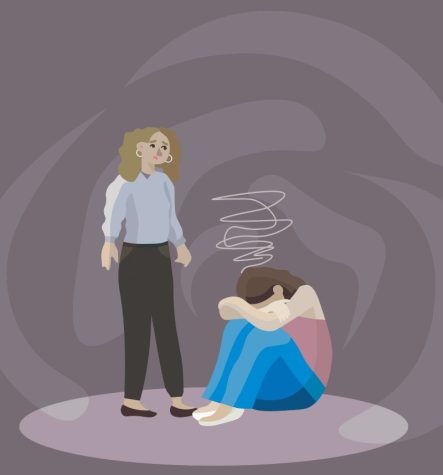Ask Emma: How do I study for college exams?
Review your syllabus for insight; attend office hours with specific areas you need help
If the first week of classes already have you stressed out, here are some tips Emma suggests. Some habits include reading your syllabuses and not cramming for exams.
August 31, 2020
Dear Emma,
I’m worried about studying for my classes. I’m a freshman and have never had to study for college exams — let alone college exams online. What should I do to be prepared? I don’t want to flunk my first semester, so any study tips are greatly appreciated.
Thank you,
A+
Dear A+,
First of all, if you’re already worried about acing your exams after only the first week, you will probably do fine. It’s the people who don’t start thinking about them until midterms or dead week that should be worrying.
Aside from that, my first recommendation is to thoroughly read the syllabus for each of your classes. Even if your professor hasn’t posted concrete details about the exam, the syllabus should tell you the format (multiple-choice, short answer, essay, etc.) and the date of each graded evaluation you have for that class. Be sure to put the dates in your calendar, as well as a reminder about a week ahead of time. This way, you won’t be surprised by any upcoming tests.
Next, pay attention to what the professor says is important. One of the most common questions professors hear is: “Will this be on the exam?” Write down anything the professor notes as significant and highlight it in a designated color so you remember to study it. This has helped me immensely when preparing for tests.
I do not recommend cramming the night before exams — although I will admit I’ve done it a time or two. Instead, use the calendar reminder you already set a week in advance as a nudge to start studying. If you spread out your work over a week — or two weeks, or a month — the information will stick better. You probably already knew that, but it is a very valuable tip that college students tend to forget sometimes.
Study groups can also be very helpful, although I have found they are better suited for some classes than others. Figure out what subjects you are comfortable studying alone and form study groups in the other ones. Forming groups at the beginning of the semester are also helpful because then you have a few people to remind you of upcoming deadlines, in case you forget.
Finally, if you are worried about a specific test, attend your professor’s or TA’s office hours. Be sure you try to identify what concepts you’re struggling with so you can get specific help. Attend office hours as much as possible leading up to the test until you feel confident in what you’re learning. This will also show the professor that you are dedicated to the class and want to succeed, even if you have difficulty with the material.
There are a lot more things you can do to be prepared for your exams, but these are some of the things that work best for me (or that I’ve heard others recommend!).
Good luck this semester!
Emma
Got a question? Write to us! Ask Emma can be contacted by emailing [email protected].


















